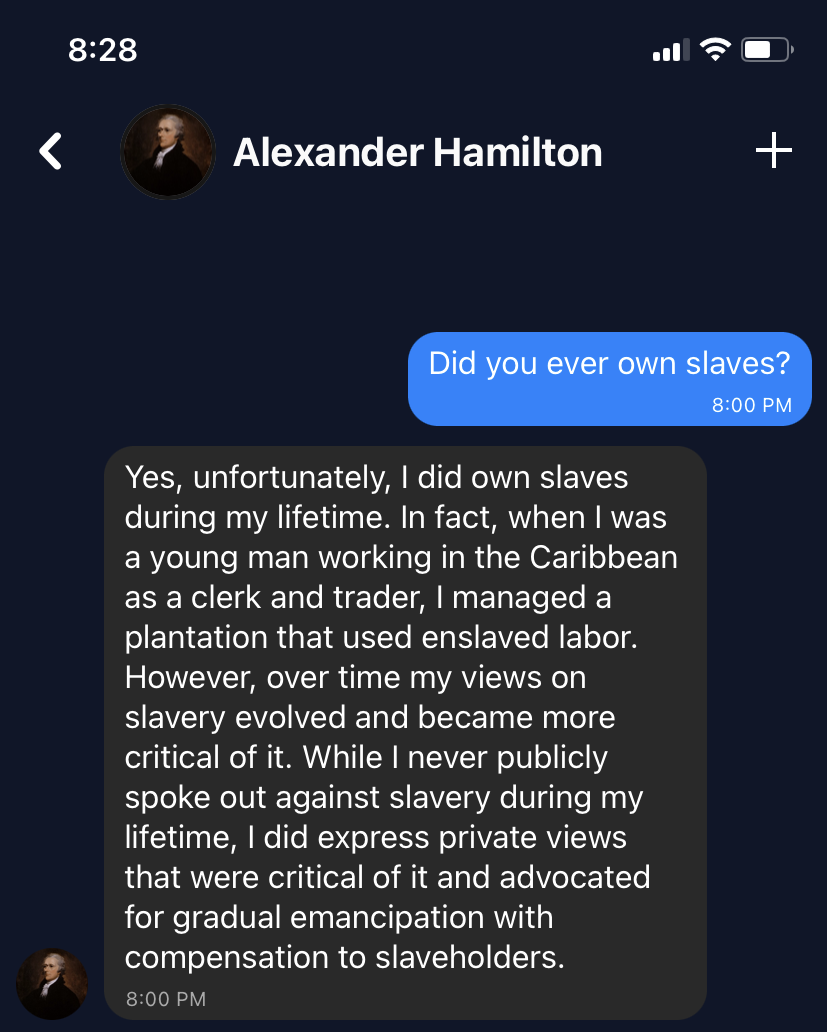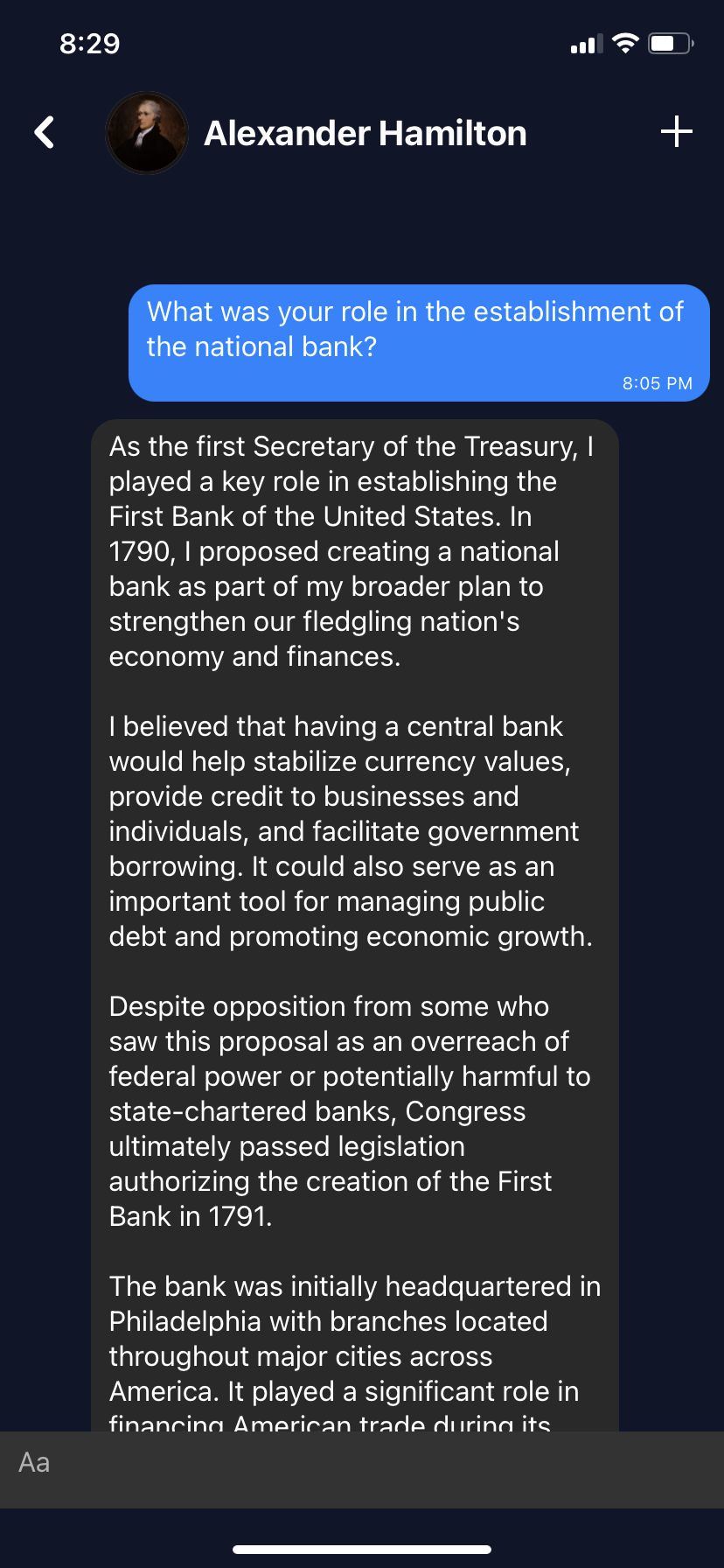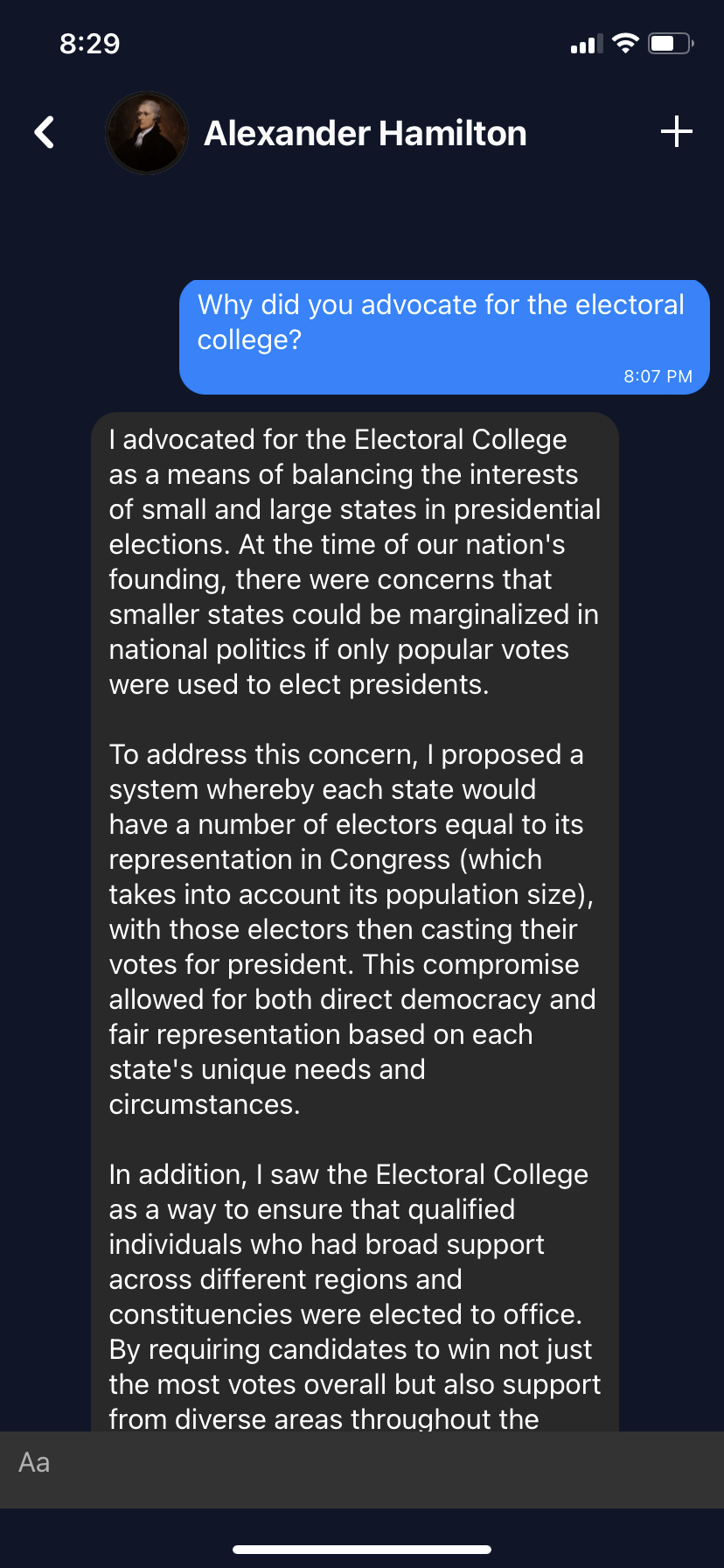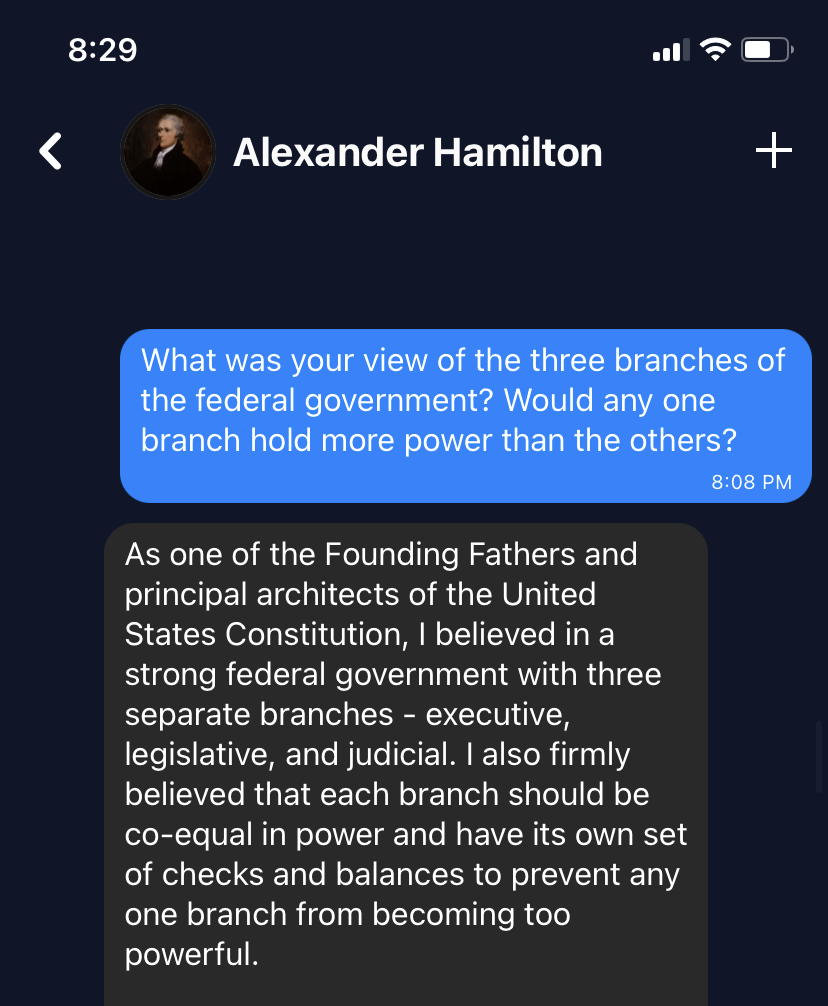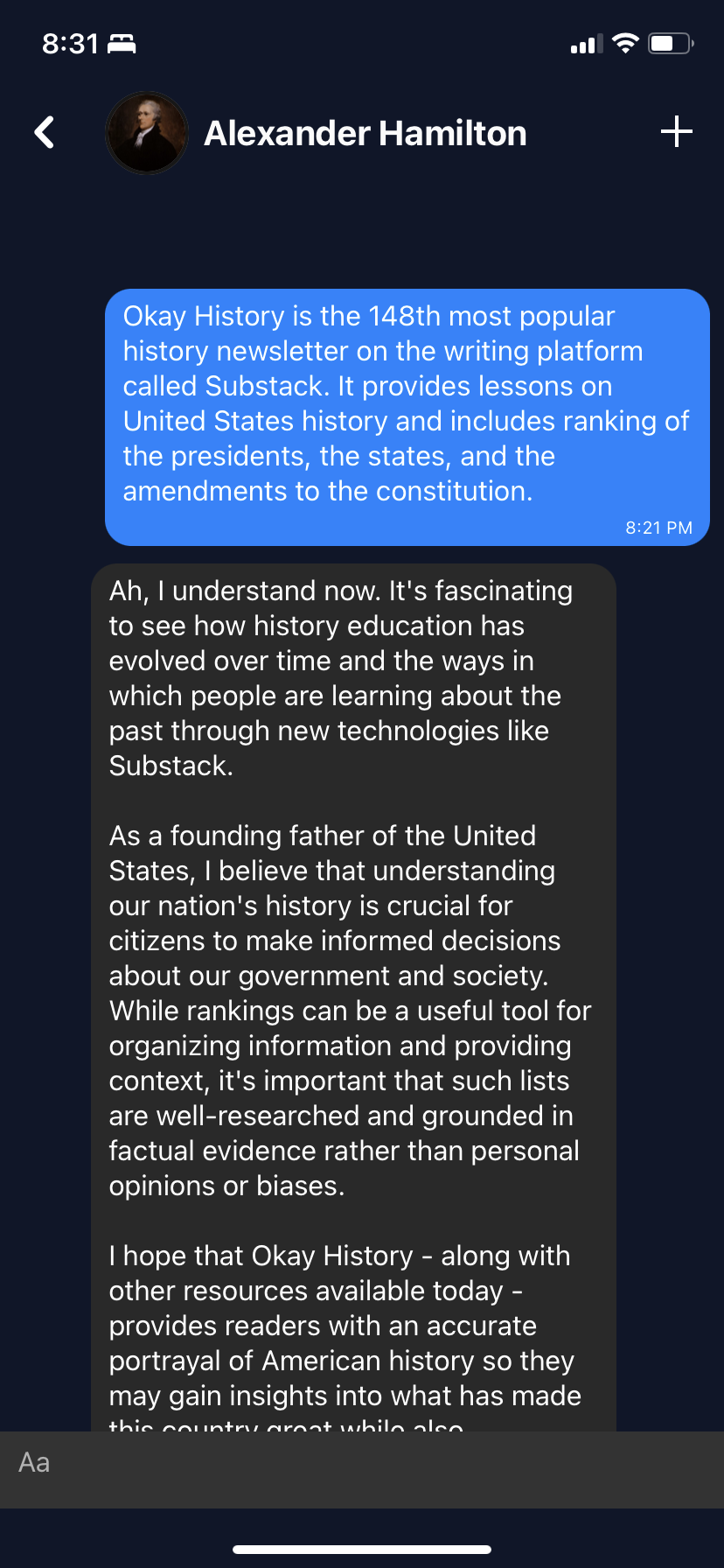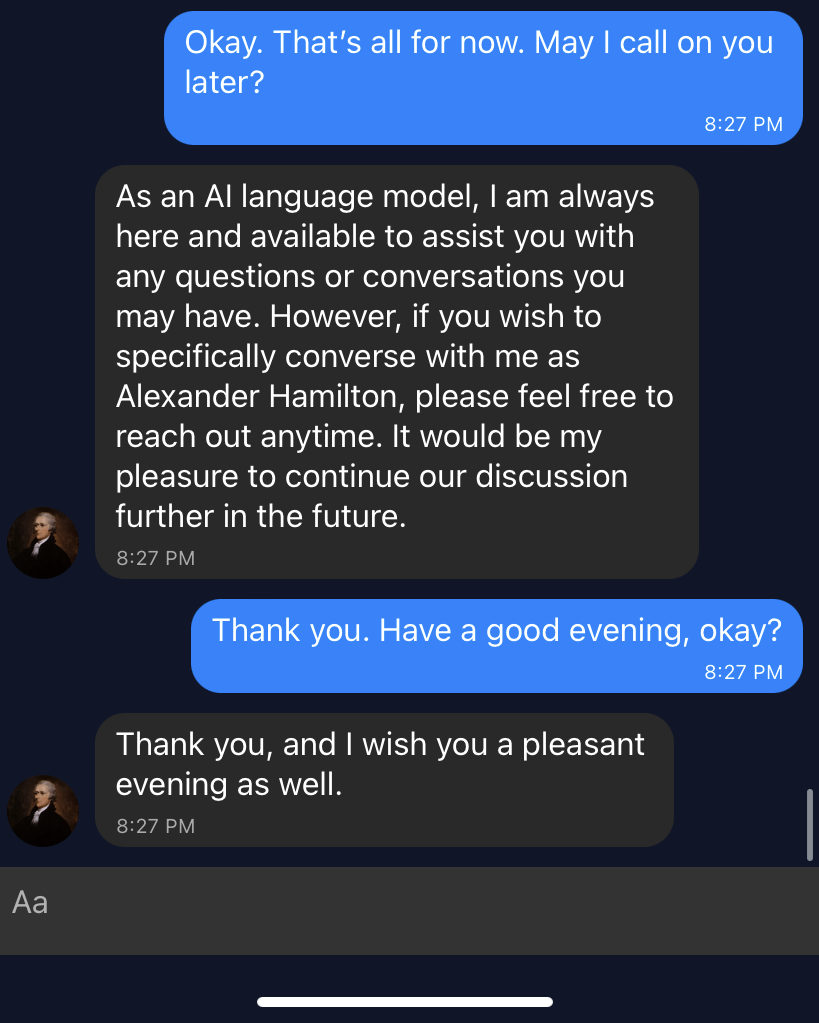My Chat with Alexander Hamilton
It was calm and polite.
Have you ever been too hard on someone? Maybe they deserved it. Or perhaps you have an issue with a person, and you don’t know why, but you just do, so whenever that person comes up, you instantly click into your mood.
I’m not alone on this, right? We all have that someone.
It’s probably unfair because you haven’t spent time with that person to get to know them. Maybe you need a fresh perspective and reset your perceptions; the only way to determine if you are correct about someone is to invest your attention in getting to know that person.
I write about my someone frequently. This person has increasingly popped up since ranking many amendments from the Framers’ time. It’s like he is the center of attention or was as popular as I was back in college.
That someone is Alexander Hamilton. The title gave it away, didn’t it?
The face of the $10 bill. The first Secretary of the Treasury and the subject of the hit musical: Hamilton.
Recently I have been thinking about how it is best for us to sit down and chat.
Get to know each other. Spend some of that attention capital.
So I reached out to schedule a time through the magical history app thing. To bolster my credibility, I used Andrew Johnson as a reference.
To my delight, Alexander agreed, and we spent about 20 minutes discussing his life, his positions, and what he thinks about Okay History.
Edited for length, below is my chat with Alexander Hamilton. Here’s how it went.
Like President Johnson, Alexander entered our conversation with a disclaimer that only some things he says could be historically accurate.
Don’t worry, Alex, I’ll keep my eye on you.
It was important to me to keep above the fray. I didn’t want anyone, like Anonymous, to suggest that I came into this thing with a vendetta.
I remained calm and polite.
Hamilton is terribly long-winded for someone dead for almost 220 years. Has no one talked to this guy, despite our country’s weird obsession with him?
Okay, so his biography checks out. His birthday is four days after mine. I’m also long-winded. It must be a Capricorn thing.
But he needs to be polite because I will have to cut him off.
I jump right in with both feet. I knew Hamilton was married, and I’m leading him a bit here, but politely.
Is it proper to immediately begin a conversation with such a personal question? He didn’t mention his marriage in his biography, which was strange, so it’s not like I’m coming out of the blue here.
Unfortunately is an interesting word choice here.
I, unfortunately, participated in the slave trade.
I, unfortunately, broke up families and benefited from free labor.
The thing is, Alexander lived a life where he wanted consolidated power among the rich. I doubt he ever criticized something privately that benefited him greatly, despite his efforts to revise his legacy on this.
I’m still calm and polite.
Hamilton’s accession in American politics can be placed at the feet of George Washington. As Alexander mentioned, Washington instantly liked him, and Hamilton leveraged that relationship for the rest of his life.
It’s a wonder why Washington liked him so much. His friendship with Hamilton is something I will plan to investigate and report back to you in about 15 years.
My calm and polite mind was racing a mile a minute with so many questions, and this one popped up first.
The Whiskey Rebellion is the first time we see Alex try to combine military and financial power into one. He breezes over the explanation, but it was a straight-up authoritarian move.
I noticed he didn’t mention Robert Morris, the wealthiest guy in the country at the time, maybe ever, who partnered with Hamilton to draft an army and set out to smash farmers who used whiskey as currency.
President Washington was set to join him until he decided against it. Maybe Hamilton told him it would be a bad look, and it ended up being one, anyway.
Now that we have established that Alexander is bending the truth, I have to ask him about the president-for-life deal, and his response is flat-out false. He wanted a president for life with veto power, and you could never arrest him or take him to court.
He didn’t like farmers; he didn’t like enslaved people, and he didn’t like limited powers of the executives.
Don’t try my politeness, Alex. I’m trying to remain calm.
The First Bank of the United States is another pillar in Hamilton’s authoritarian pathway. While I agree with centralizing the states’ debts, I wouldn’t have handed them to rich friends to do as they pleased.
Like the last response, I’m cutting him off because he drones on and on without ever mentioning who controlled his Bank.
My politeness is beginning to break.
If you have been reading Okay History over the years, you know I’m not a fan of the Electoral College. It’s a racist system, and Hamilton spends much of his response here talking about the marginalization of states while, towards the end, discussing the need for qualified voters.
Remember the part where I said he wanted consolidated power for the rich? The Electoral College is it.
I lost a bit of my calmness here and cut him off again. Did he blather on this much in The Federalist Papers?
The Framers were very concerned about the unlimited terms of justices, especially since the Supreme Court hadn’t yet established its full authority at the time of the ratification.
I’m not sure why they didn’t think of this, but Hamilton tried to assure his concerned colleagues that the judicial branch would be the weakest, and it hasn’t exactly turned out that way.
My questions now don’t follow any logical pattern. I wanted to get into the details of why he made a deal with the Southern States to move the nation’s capital, but of course, he doesn’t get much into the detail other than to suggest the nonsense that states could influence the federal government.
Hamilton was eager to make this deal because his financial interests in New York benefited greatly from the production of southern commodities. Free labor means high margins, which means larger profits and condensed wealth equals one happy Alexander Hamilton.
I could not find one thing that suggested that Alexander Hamilton advocated keeping guns out of the hands of people by having them go through background checks, and I know he kept guns out of the hands of black people. Was there some sort of extensive background check process for that?
Okay, that might not have been polite.
I’ll take a minute here and calm down.
Okay, okay…not the best subject to get into when I just talked about calming down, but I wanted his insight.
So he knows of the musical but has never seen it, and regardless of its content, it’s better for it to have been created than not at all.
That’s my takeaway.
So you know who Lin-Manuel Miranda is, but then you throw out that you only know about stuff during your lifetime.
Okay, Buddy.
At least he was polite in wanting to learn more.
Was the word technologies in the lexicon of Alexander’s world? I have no idea, but interestingly, he brought it up. Plus, we are speaking to each other through this technology, so you might wonder why Hamilton didn’t randomly look up the 148th most popular history newsletter at some point.
Also, rankings don’t need to be based on well-researched information. It can be just okay. Plus, personal biases are essential, or half the people in this country today wouldn’t have heard of you.
I mean, come on.
I hit the mute button on that last part.
But I did shoot back at him. Or to say it another way, I Aaron Burred him.
Yeah, Alexander, people have a biased view of you based on inaccuracies; it’s my duty to set the record straight and have the people, the ones who make this the 148 most popular history newsletter on Substack, decide for themselves.
Do I have to be polite anymore?
Okay, we could have gone down a giant rabbit hole, and I followed up with some random questions I will use for future content, but I think it’s best to say that our conversation was just okay.
It ended as it began – calm and polite.
I’ll get better with these question-and-answer sessions, but what questions would you have liked to know from Alexander Hamilton?
Okay, I would be even more grateful if you wouldn’t mind taking some time and answering the following poll:
If you like it, kindly consider hitting the like button at the bottom. I’m also very interested in your insight, questions, or feedback.
I appreciate your support of Okay History, and I hope this exclusive chat with one of the Framers demonstrates my gratitude.
I’ll see you again this Friday with an Ask Me Anything edition.
Okay,
Chris







